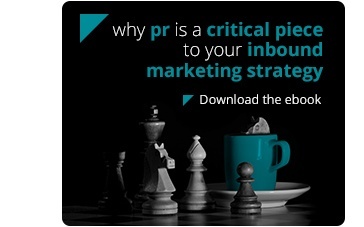Perry has invested with multiple venture firms and has also founded several successful tech startups. In this interview, PAN EVP Phil Carpenter talked with Perry about topics such as how large companies miss the mark in marketing, where a startup CMO should focus his attentions and whether or not VC firms can overcome their current challenges.
You’ve worked with many startups during your career, but recently you’ve focused on working with teams within larger companies. Why? What are the advantages of this focus?
Perry: There are several reasons. First and foremost, large companies are getting attacked like never before. They should be paranoid about being disrupted. You look at old-line businesses that previously would never have been attacked by VC-funded startup companies. At this point, pretty much anything is fair game, from lasers to thermostats to doorbells to beds.
The second thing is the big companies don’t know what to do. Most are not equipped to innovate quickly. Some are, but rarely do they have the sharpness to compete with startup companies. The pain that exists within big companies is acute, and so for me that makes for interesting opportunities. The question I’m looking to answer is, even though the pain is intense, can I help them? I think big companies aren’t great at moving fast, changing and competing with startups. On the flipside, you’d think if they did it right, they’d do extremely well. The leverage they have with their channel, brand and partners is tremendous, and that’s always the worry for startup companies. They worry that if big guy enters the game he’ll eat you for breakfast and spit you out by the time lunch comes around.
For me, this situation presents a challenge, and I could potentially go into one of these companies and provide a significant value.
In what ways do these large-company business units fall short when it comes to marketing?
Perry: Within large companies, there’s quite a bit of arrogance that exists. People think, “well, we could just create a startup within our own walls. We can borrow people from here and there.” There’s so many ways you can get it wrong, and this is magnified in a culture where these big companies believe if they put a product on the shelf or put it on the market or give it to their sales force, they’ll sell a ton of it. But customers have the last say. Companies have to build the product the customers want. And to do that with a brand new product isn’t easy. I see a lot of big companies enter new markets, they seem interesting, they do a good job of evangelizing. They’re going to change the world and crush all the startups in the space, but they typically get the product wrong. They also don’t have the right incentives for their sales force to sell the product, and in a lot of cases they don’t even communicate a compelling value proposition to the customer.
What advice would you offer to a CMO on where to focus?
Perry: For a startup company, I want to see the CMO focus on bringing down the cost of a marketing qualified lead. Then, you can work in coordination with the sales team so you can show that you have a credible business, one in which you make more money from your customers than you paid to acquire them. For most startup companies, your funding is dependent on scalability. You can spend money on branding, but that doesn’t actually reduce the risk of a business. So how do you get from the risky bet to the safe bet? The answer is you get to the point where you know that if you add a sales guy, you’re going to grow revenues by converting marketing qualified leads.
The tools that are available to marketers now are great. We have companies like HubSpot and Marketo that allow you to track lead acquisition from the beginning. Customer acquisition has become a science, and it’s a relatively new field for people entering the marketing profession. The people who do it well are worth their weight in gold.
Where do you think a CMO should spend his time in his first 100 days in a new job?
Perry: If I were to give someone advice in the first 100 days, I’d say, why don’t you go do an audit on your online marketing and ask yourself, “do you really do a good job of acquiring customers efficiently?” If you can’t answer that question, then you know exactly where you need to direct your attentions.
What do you see as the principal challenges that the VC industry faces right now? Can they be overcome, or are these fundamental issues?
Perry: We went through this error in 2000 where VCs were paying too much for deals. We had a lot of inflated valuations for ecommerce companies. And it wasn’t just ecommerce, it was across the board: There was too much money in the market. It probably took five or six years for the market to correct. But it’s pretty clear that there is too much money in the market again now. The valuations of the deals are crazy again, and it’s highly competitive and hard for venture funds to be rational. The only thing that is better today than in 2000 is that today’s companies are healthier than the early ecommerce companies were.
I think we’re in a challenging time and that we’re going to see a slowdown. But ironically, it’s a better time to start a company, because you have less competition and it’s easier to hire engineers.
Within the B2B tech world, are there sectors that you see as particularly promising right now? Which ones and why?
Perry: I see healthcare as a standout. There is need for change there, and we haven’t seen as much tech innovation in this segment as we have in other verticals.
Beyond healthcare, I don’t see many verticals poised for outrageous change. Instead, things will be a bit more evolutionary. There’s a ton of reinvention of businesses going on in which companies are making clever changes to the ways in which consumers interact with products. And when you see this you think “gosh, that’s so obvious!” Today, I saw someone selling insurance for flights. If your flight gets delayed, you just go on your phone and this company already knows the flight got delayed and they’ll change your flight for free. Little things like that, they’re not revolutionary, but they’re interesting and valuable.
Perry Wu has led a dual life as venture capitalist and entrepreneur. He is currently a General Partner with Turn Ventures and has also been ain investment professional with ComVentures, Accel Partners and Bedrock Capital. In addition, Perry is co-founder of Motzie and co-founded both BitGravity and Persist Technologies. Perry earned an MBA from Harvard Business School and BS in Electrical Engineering from Stanford.
If you enjoyed this ‘Voice of the Valley’ check out more from this series

 Source:
Source: 